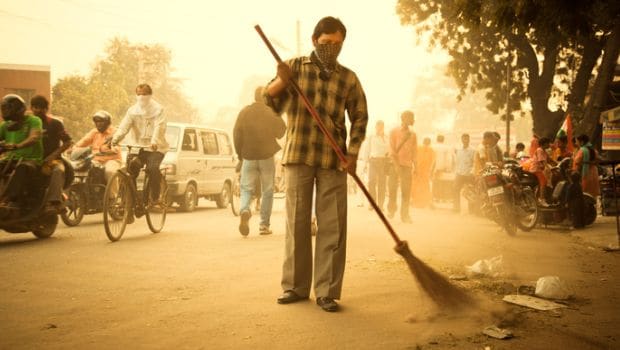The air you breathe may contain DNA from genes that make bacteria resistant to the most powerful antibiotics developed yet, a study has found. In the study, the researchers looked for genes that make bacteria resistant to antibiotics in a total of 864 samples of DNA collected from humans, animals, and different environments worldwide."In the air samples from Beijing, we found a series of genes that provide resistance to carbapenems -- a group of last resort antibiotics taken for infections caused by bacteria that are often very difficult to treat," said Joakim Larsson, Professor at the University of Gothenburg in Sweden. The polluted city air may be a more important means of transmission than previously thought, he added.The results, however, do not show whether the sampled bacteria were actually alive in the air, which would make them a real threat. "It is reasonable to believe that there is a mixture of live and dead bacteria, based on experience from other studies of air," Larsson added. The researchers next plan to find out if resistance spreads through air from European sewage treatment plants.
"We're going to let treatment plant employees carry air samplers. We will also study their bacterial flora and flora of people who live very close and farther away, and see if there seems to be a connection to the treatment plants," Larsson said.
(This story has not been edited by NDTV staff and is auto-generated from a syndicated feed.)
"We're going to let treatment plant employees carry air samplers. We will also study their bacterial flora and flora of people who live very close and farther away, and see if there seems to be a connection to the treatment plants," Larsson said.
(This story has not been edited by NDTV staff and is auto-generated from a syndicated feed.)
Advertisement









